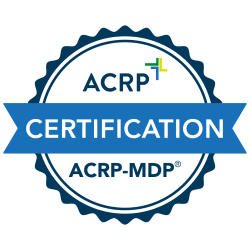A study led by the Duke Clinical Research Institute (DCRI) has expanded its testing platform to evaluate three repurposed medications in the search for effective, safe treatments for mild-to-moderate COVID-19. Repurposed medications are those already approved by the U.S. Food and Drug Administration for other indications.
“We have treatments for people with severe COVID-19 who are at high risk for hospitalization or death, but they are complex to administer,” said Adrian Hernandez, MD, the study’s administrative principal investigator and executive director of the DCRI. “Currently, there are no approved prescription medications that can be easily given at home to treat mild-to-moderate symptoms of the virus early in its course to prevent worsening of COVID-19.”
ACTIV-6, “The Randomized Trial to Evaluate Efficacy of Repurposed Medications,” is a nationwide double-blind study expected to enroll nearly 15,000 participants from across the United States through its website and call center (833-385-1880). The study is now testing these repurposed medications:
- Ivermectin, used to treat parasitic infections;
- Fluticasone, an inhaled steroid commonly prescribed for asthma and chronic obstructive pulmonary disease; and
- Fluvoxamine, a selective serotonin reuptake inhibitor (SSRI), often prescribed for depression.
Hernandez noted the study will continue to add medications over time. “The medications studied in ACTIV-6 have shown potential for treating COVID-19 in the outpatient setting, but they need to be evaluated in a larger, more rigorous and randomized clinical trial to determine efficacy and safety,” he said.
To be eligible, participants must be 30 years old or older, have had a positive COVID-19 test within the past 10 days, and have at least two symptoms of the illness for seven days or less. Symptoms include fatigue, difficulty breathing, fever, cough, nausea, vomiting, diarrhea, body aches, chills, headache, sore throat, nasal symptoms, and/or new loss of sense of taste or smell. People can participate from anywhere in the United States, and medications are shipped at no cost. Participation involves taking the medication and keeping track of symptoms over 90 days through online surveys.
The study is part of the National Institutes of Health-funded Accelerating COVID-19 Therapeutic Interventions and Vaccines (ACTIV) led by the National Center for Advancing Translational Sciences. The DCRI serves as the study’s coordinating center, partnering with Vanderbilt University Medical Center as the study’s data coordinating center.
Edited by Gary Cramer



